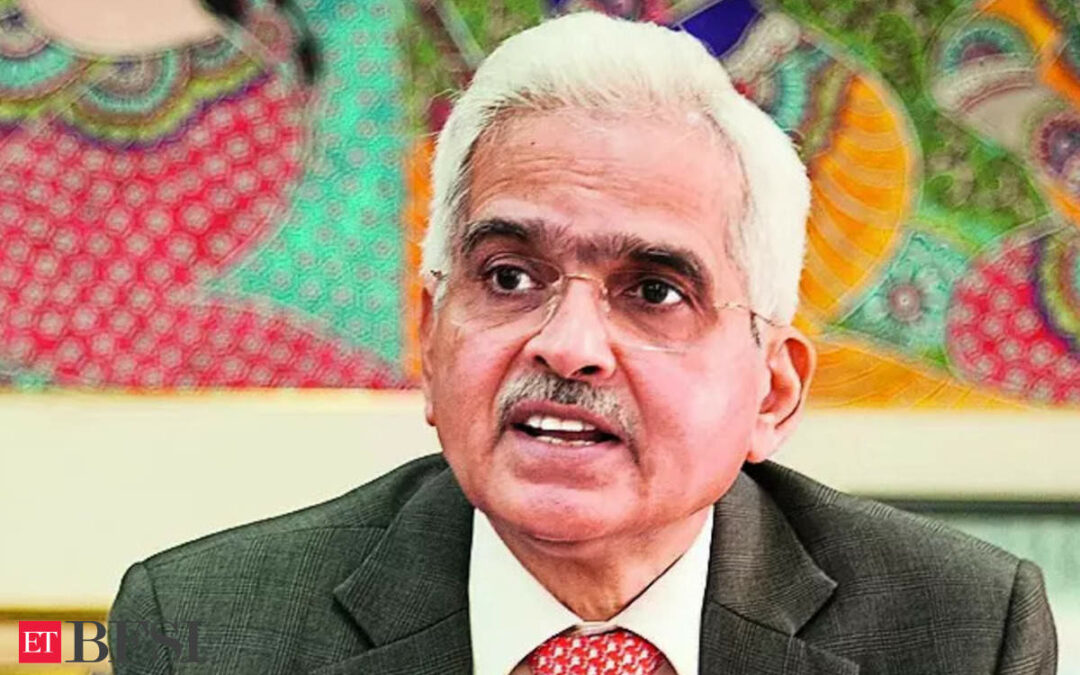Mumbai: The Reserve Bank of India (RBI) Governor, Shaktikanta Das, said on Thursday it was too early to talk about a cut in policy rates given the uncertain global economic environment and a persistently high home consumer inflation, which has trended above the central bank’s legally mandated target.
“The overall economic environment globally and in India is so uncertain. The second thing is that CPI (consumer price index) headline inflation continues to be close to 5%, and I think it is too early to talk about an interest rate cut,” the Governor said in an interview to a television station.
However, the Indian economy is on a trajectory of high growth, Das said, pointing to New Delhi’s established credentials as a global growth outlier.
“We are quite a distance away from the 4% target,” Das said. “I would not like to give any forward guidance which would lead the market players and stakeholders and others to board the wrong train.”
India’s central bank is legally required to maintain consumer price inflation at 4%, with a 2 percentage point latitude in either direction.
In the current cycle of rate increases, the Reserve Bank of India has left the policy repo rate unchanged at 6.5% since February 2023, having begun hardening rates the summer before.
Real Rate Debates
Das reiterated that defining a real interest rate in the current uncertain environment is difficult.
“A neutral rate or real rate is subject to so many uncertainties and it is also a theoretical construct. Policy making in the real world has to be driven not by an abstract theoretical construct, but guided by actual numbers… We are still quite a distance away from inflation target, although growth is holding quite well and is at 7.2%,” Das said.
He added that the central bank is analysing the real rate for India and will release its analysis within a couple of months.
On banking regulations, he said that the expected credit loss (ECL) and the project finance norms will strengthen the balance sheets in the lending industry.
Das said that the ECL provision framework for banks is expected later this fiscal year.
Derisking Balance Sheets
“The balance sheets of banks need to remain strong at all points of time; there can not be surprises, all perceived risks have to be appropriately provided for,” he added.
Under the ECL provisioning banks have to make provisions on bad loans anticipating the likely losses, rather than post marking loans as NPAs.
Das also batted for an improvement in India’s international credit rating from the current BBB-, expressing optimism that it will ultimately happen.
He said he was confident that the government’s commitment to fiscal consolidation and reduction in the fiscal deficit to 4.5% by 2025-2026 will ultimately lead to a rating upgrade.
He also stated that the dividend payment of ₹2.1 lakh crore is formula driven, and that it should not be linked to budgetary expectations.










